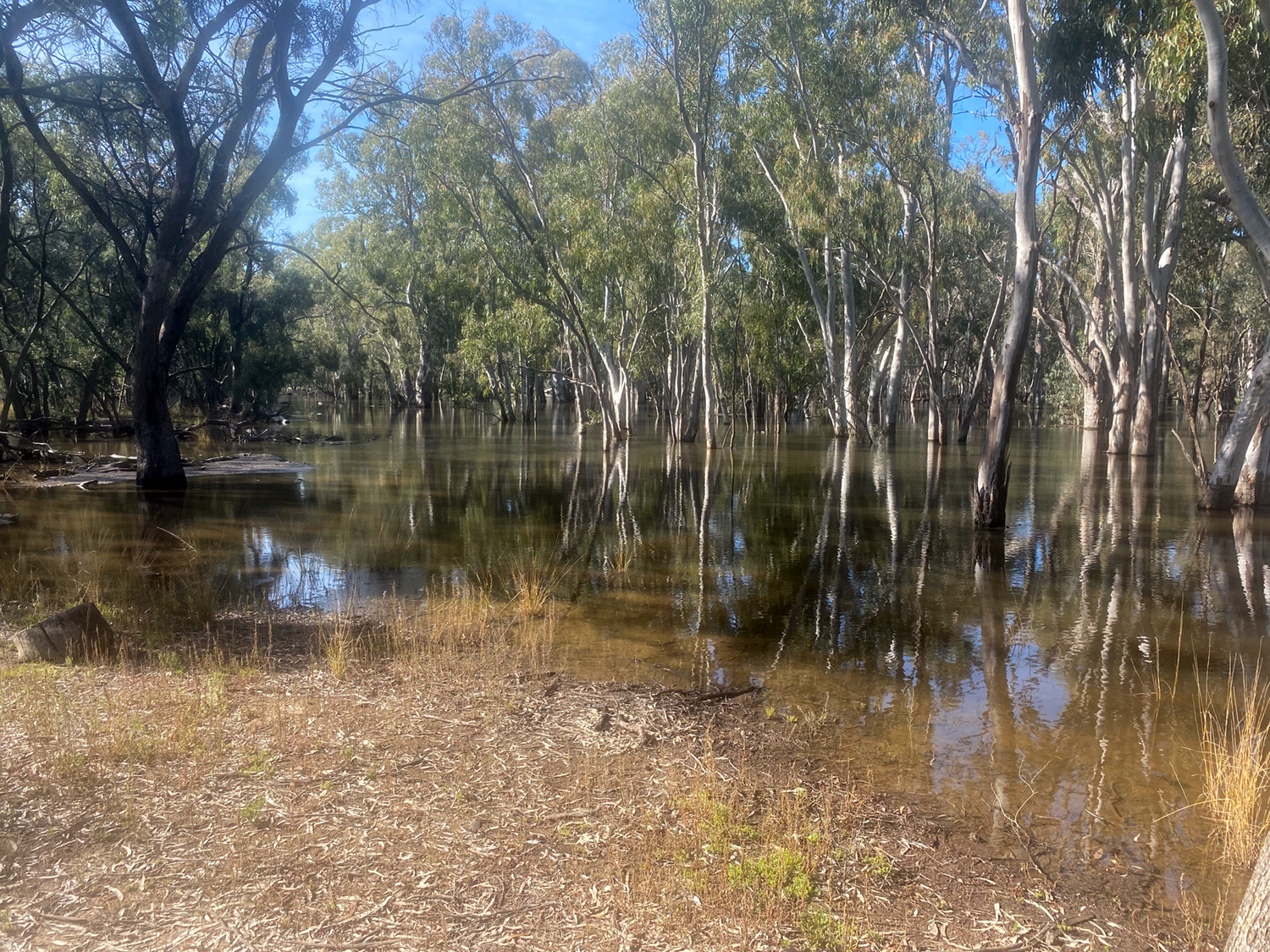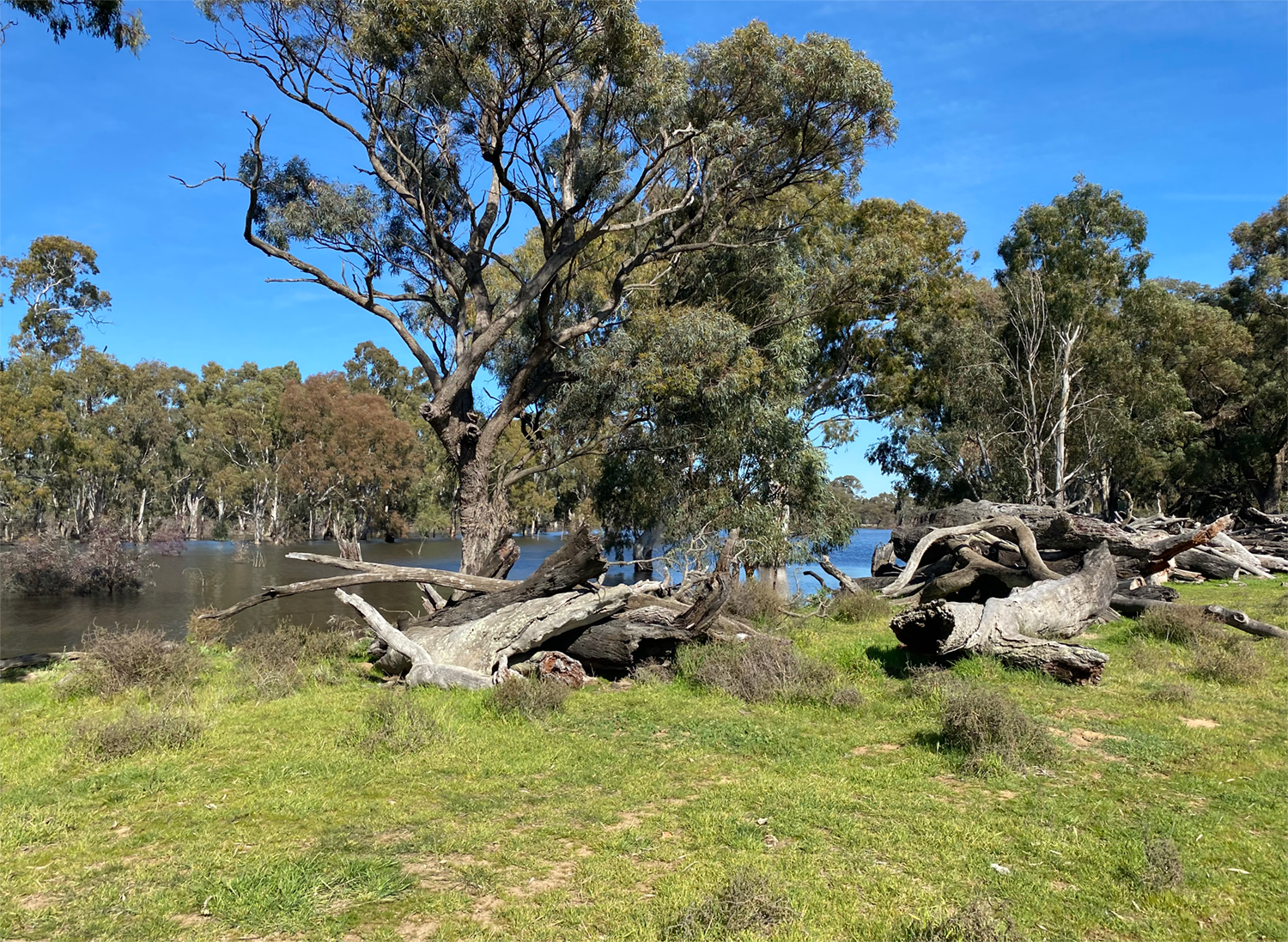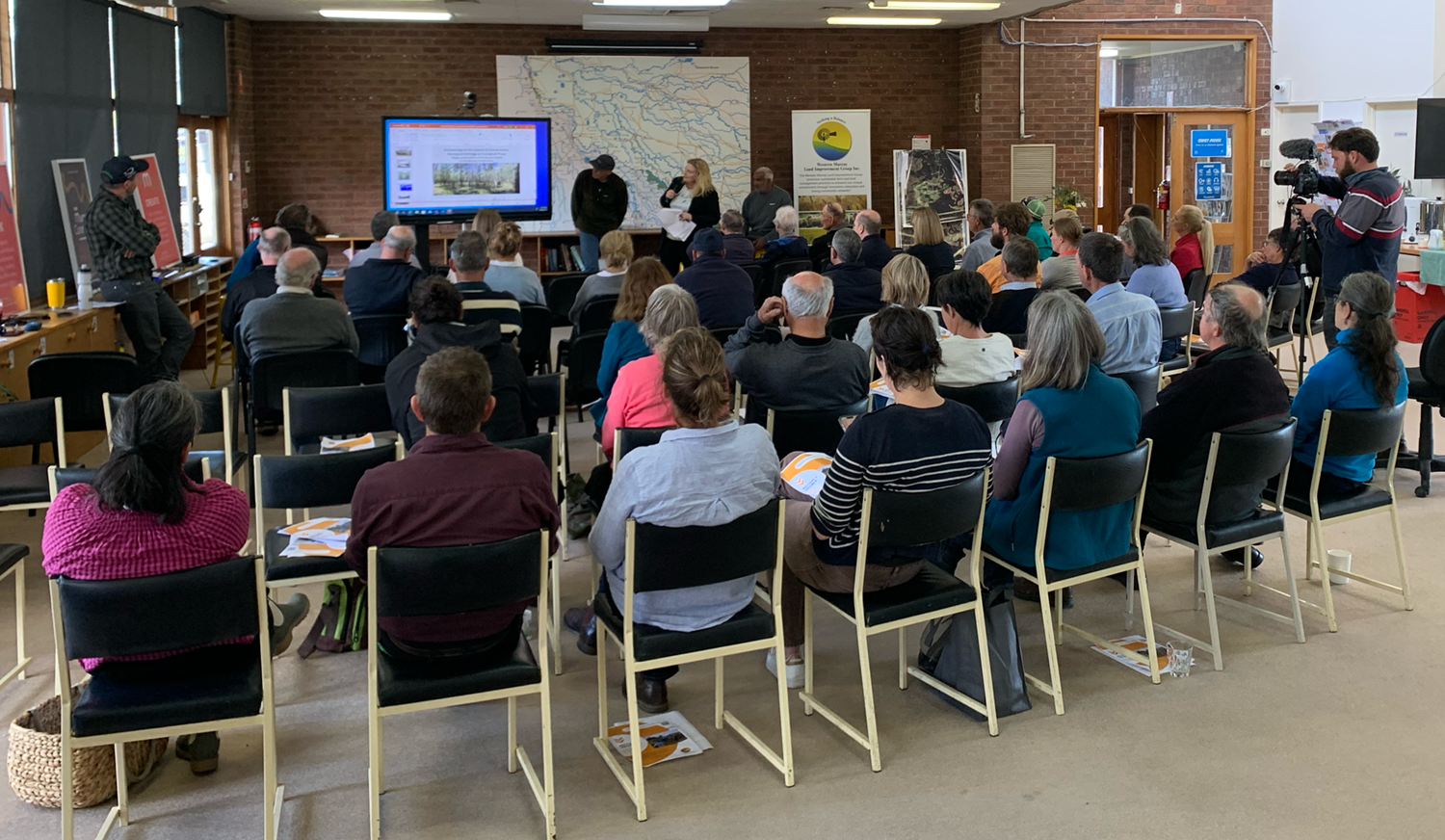Horseshoe Lagoon is a key feature within the Biolink site
Mulloon Consulting recently commenced work on an exciting new project on the Murray River near Barham, NSW. The River Country Biolink Project, which is being led by the Western Murray Land Improvement Group (WMLIG), aims to rehydrate landscapes and restore ecosystems within the mid-Murray River delta.
Co-designed by the WMLIG, Gonn landholders, ecologists, traditional owners, archaeologists and environmental scientists, the River Country Biolink focuses on restoring wetlands and establishing a contiguous corridor connecting the Wakool and Murray Rivers, the Murray Valley National Park and Campbell’s Island State Forest through productive agricultural land. The intention is that the Biolink project will act as a demonstration site for community-led opportunities to fund ecological restoration through environmental market-funded initiatives within the mid-Murray River delta.
The project is in its early co-design phase and Mulloon Consulting involvement to date has included:
-
Attendance at the initial kick-off workshop at Gonn Station in July 2023 by Landscape Planner Jack Smart, along with Biolink landholders, WMLIG staff and co-design team, including Andrew Ward from Regen Farmers Mutual.
-
Site inspection in August 2023 by Landscape Planners Jack Smart and Annabel Manning with landholders to assess landscape rehydration conceptual design opportunities across two Biolink properties and preparation of conceptual design plans.
-
Attendance at the WMLIG River Country Biolink Project Field Day at Barham on 29 August 2023. The Mulloon Institute’s CEO and Managing Director Carolyn Hall and Landscape Planner Jack Smart presented on landscape rehydration opportunities for the Biolink site along with other co-design team members.
Sheepwash Lagoon is a key wetland for the Biolink site
The project represents an exciting model for landscape repair, with the co-design process seeking to draw on the knowledge of 130 years of agricultural water use and over 60,000 years of Barapa Barapa ancestral knowledge combined with local farmers, ecologists and rehydration experts to link hydrated on-farm wetland assets to maximise economic, social and natural benefits.
Mulloon Consulting site inspection of Biolink properties with landholders. The creek was well hydrated at the time due to a high flow event in the Murray River.
The WMLIG Field Day was well attended by local participants.
The project is funded through WWF’s Innovate to Regenerate (I2R) program.



